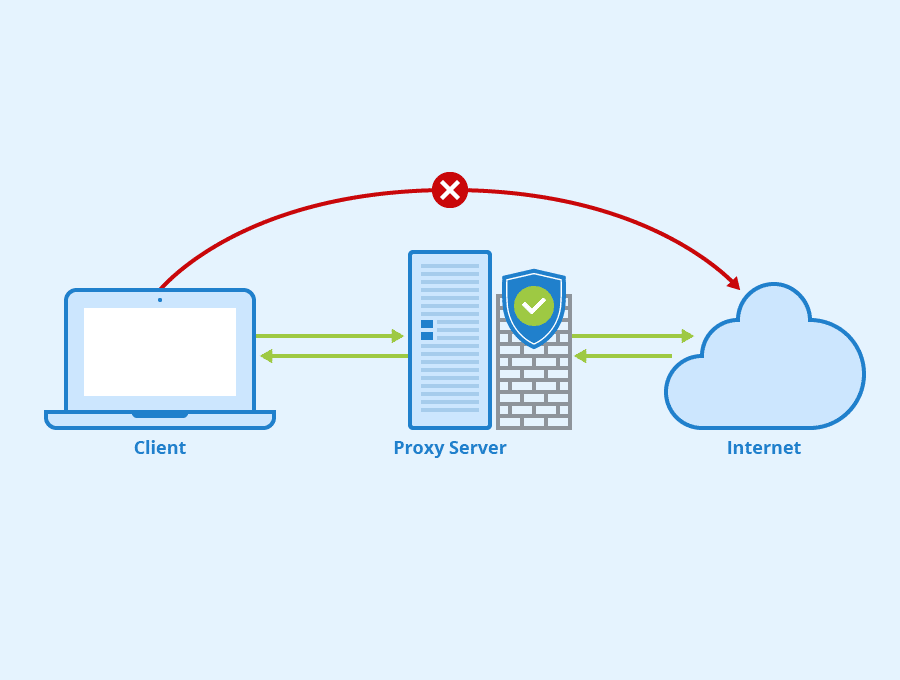Do you know the difference between proxy server and VPN service? If you don’t know the difference, it would be nice if you read this article to the end.
When you want to access the internet or any website online or want to aim to hide your real IP address, you can use “VPN Proxy”, “Proxy Server” or “Proxy Service” which you can find easily on the internet through search engines. .
Unlike for VPN services, most VPN providers also provide proxys services. Or you can use a free proxys server. But many people who use VPN or proxy service wonder about what is the difference between them i.e. Proxy and VPN?
What is a Proxy Server?

A proxy server is like a mediation between you and the Internet. In general, in both cases, I will use a proxy server.
1. A proxy server located on a local router and will authenticate users on the network. This kind of proxy is usually used as a Wi-Fi hotspot for hotels, cafes, airports or other public places where a public internet network is available. They do not require users to configure themselves.
2. Web proxy server, the web proxy settings are used on your browser, whether it’s Chrome, Firefox, Opera or Safari web browsers. Your web browser will be mediated by a remote server. While using it, your IP address will be changed in the browser you set up, but it will not be applied to your entire network connection which means that it only happens in your browser only.
You can also set up proxies separately for other apps, but only for each app. And more importantly, that proxy server don’t provide encryption protection like VPNs do.
What is a VPN?
A VPN creates a private network that serves as a point to show the network between your computer or device and your VPN server.
When you request a website from your computer using a VPN, your VPN client encrypts your request and then sends it to the VPN server.
The VPN server then requests the information from the destination website and encrypts it before sending it back to your computer.
This allows you to keep your internet connection safe and away from prying eyes of hackers, your internet service provider, and even the government.
Difference Between Proxy and VPN
Below is a complete explanation of 7 differences that you can learn about Proxy servers and VPNs. So, when you want to decide to make yourself anonymous on the internet network you are accessing, you have several ways such as using a VPN or Proxys. And when you want to be really safe, you have to know what the difference is between the two.
Access to the internet
- VPN: VPN service allows you to access all blocked websites on the internet. Whether it’s blocked by the government, your ISP or where you’re connected to the internet
- Proxy: The proxy server cannot bypass the firewall, therefore, there are still many limitations in the use of the proxy server.
Anonymity
- VPN: VPN service providers can completely hide your real IP address, no one can steal your privacy information and snoop on your internet traffic.
- Proxy: The owner of the proxyserver knows your real IP address and can monitor traffic on non-HTTPS websites, so you are not completely anonymous.
Connection speed
- VPN: VPN can provide fast or even very fast network connection speed to help you improve your online experience.
- Proxy: Unlike when using a proxy server, the continuous routing of traffic from your computer to an intermediary server can cause your Internet speed to drop.
Choose Location
- VPN: VPN services offer hundreds of server addresses for you to choose from.
- Proxy: Proxy server does not have geographic location selection function.
Privacy and Security
- VPN: VPN encrypts all information, data and hides your real IP address, so VPN can fully protect your privacy and security.
- Proxies: Not all proxy servers use SSL connections, so there is a risk of cyber-attack and there’s a good chance that your whereabouts can still be tracked.
Device Compatibility
- VPN: VPN applications can run on all systems both computers and smartphones, such as windows, Android, iOS, Mac, etc.
- Proxy: Proxy is only available for certain occasions or only works with web browsers like Chrome, Firefox, Opera, etc.
Stability
- VPN: Once the data is encrypted, the VPN will not be disturbed often, so the VPN is stable.
- Proxy: Proxy servers are often disconnected due to traffic on intermediate servers.
In short, VPN can be used for free Internet access, protect your privacy and security, it is indeed 100% reliable. Relatively speaking, proxy servers are less reliable and most of them have very slow connections, plus they can only be used through a web browser or in certain applications.
